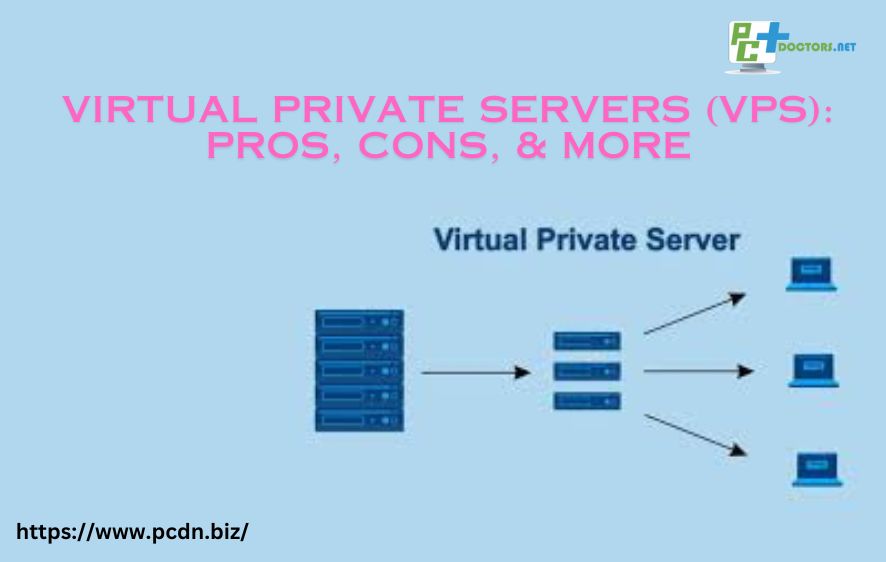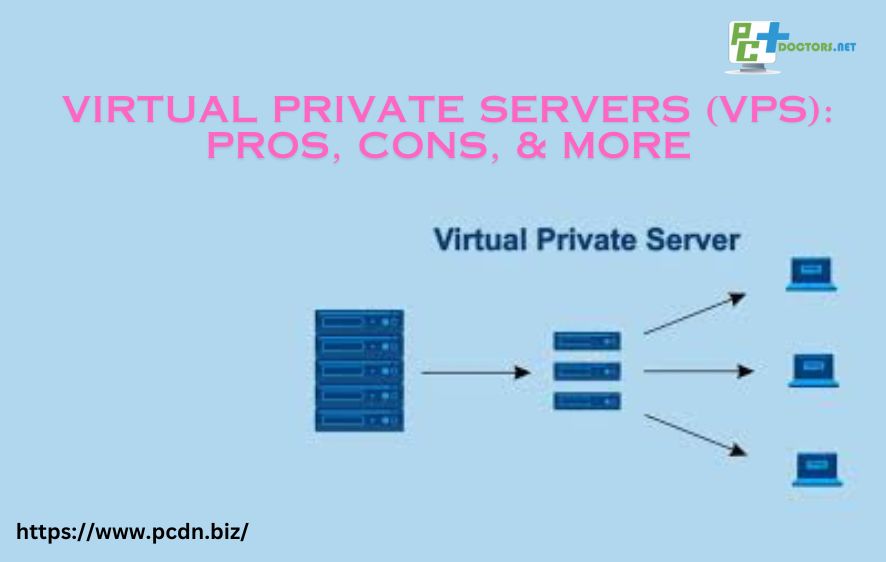Virtual Private Servers (VPS): Pros, Cons, & More
Introduction:
In the ever-evolving landscape of digital infrastructure, Virtual Private Servers (VPS) stand out as a versatile solution catering to a myriad of needs for businesses and individuals alike. With the rise of online ventures and the increasing demand for robust hosting solutions, understanding the nuances of VPS becomes crucial. Let’s delve into the pros, cons, and everything in between.
What is virtual private servers
VPS hosting involves partitioning a physical server into multiple virtual compartments. These virtual servers operate independently, ensuring dedicated resources such as CPU, RAM, and storage. This results in enhanced stability and performance compared to shared hosting. The versatility of VPS hosting allows you to easily adjust your resources up or down according to your requirements, making it well-suited for businesses of all sizes. Whether you’re running a personal blog, a comprehensive eCommerce platform, or a complex web application, VPS hosting, especially for eCommerce websites, can be tailored to meet your specific needs.
Key Characteristics of a VPS Service
Resource Allocation: VPS services allocate dedicated resources such as CPU, RAM, storage, and bandwidth to each virtual server, ensuring consistent performance and reliability.
Scalability: VPS services often offer scalability options, allowing users to easily upgrade or downgrade their resources as needed without experiencing significant downtime.
Cost-effectiveness: VPS services are generally more affordable than dedicated servers, making them an attractive option for small to medium-sized businesses and individuals requiring a robust hosting solution without the high costs associated with dedicated hardware.
How Does A VPS Work?
A Virtual Private Server (VPS) utilizes virtualization technology to establish a dedicated server environment within a shared server. The process begins with the hosting provider installing a hypervisor, a virtual layer placed over the server operating system. This hypervisor divides the server into numerous independent compartments or virtual machines, each capable of running its own operating system and software. Within your private compartment, you have the freedom to install preferred operating systems such as Linux, essential software like MySQL, or control panels like cPanel. This level of customization mirrors the experience of utilizing a dedicated server. One of the primary advantages of a VPS is the allocation of guaranteed resources. Unlike shared hosting where resources are distributed among all users on a server, a VPS reserves a specific set of resources exclusively for your use. These resources include memory, disk space, and CPU cores, ensuring consistent performance for your server.
What Is a VPS Used For?
Development and Testing: VPS environments are often used by developers for testing and development purposes. Developers can create virtualized instances of servers to test their applications in a controlled environment before deploying them to a production server. This helps identify and fix any issues before they affect real users.
Backup and Storage: VPS instances can also be used for backup and storage purposes. Users can store files, databases, and other data on a VPS to ensure redundancy and disaster recovery. Additionally, some VPS providers offer scalable storage options that can be easily expanded as needed.
VPN (Virtual Private Network): Users can set up their own VPN using a VPS instance, allowing them to secure their internet connection and bypass geographic restrictions. This is particularly useful for accessing region-restricted content or enhancing online privacy and security.
Pros And Cons Of VPS
The following are the pros of VPS:
Scalability: One of the most significant advantages of VPS hosting is its scalability. As your website or application grows, you can easily upgrade your resources without experiencing downtime.
Improved Security: The enhanced security of a VPS stems from its isolated environment. By operating independently from other users, activities performed by one user on the server do not impact another user’s VPS. This isolation significantly reduces the likelihood of security vulnerabilities often encountered in shared hosting setups.
Value: It strikes a perfect balance between cost and performance, surpassing shared hosting in expense but remaining notably cheaper than leasing an entire server. VPS furnishes essential resources and functionalities suitable for numerous small to medium-sized businesses and tech-savvy individuals, delivering exceptional value.
The following are the cons of VPS:
Technical Knowledge Required: Operating a VPS demands a certain degree of technical proficiency. Unlike shared hosting, where the provider shoulders most of the server management, VPS hosting typically necessitates users to grasp server administration and upkeep. This encompasses tasks such as software updates, implementing security patches, and resolving any encountered issues. For individuals lacking technical know-how, this may translate to added expenses for hiring a system administrator or selecting a managed VPS service, which often comes at a higher cost.
Resource Limitations: While VPS hosting offers dedicated resources, these are still finite. High traffic spikes or resource-intensive applications may require additional resources or upgrading to a dedicated server.
Risk of Downtime: Although VPS hosting typically offers greater reliability compared to shared hosting, it still presents a potential risk of downtime. This risk arises from sharing the physical server with other VPS instances. If any of these neighboring VPS instances encounter issues or consume excessive resources, it may impact the performance and availability of your own VPS.
When Should You Switch To VPS?
- You are concerned about security:
If your website handles sensitive data or you’re wary of rising security risks, the upgraded security capabilities provided by a VPS become imperative. Enhanced features such as robust firewalls and SSL certificates offer essential protection. Additionally, the isolated environment of a VPS significantly reduces the potential risks posed by other websites sharing the same server.
- Your Website Is Consistently Running Slowly:
VPS hosting offers the necessary bandwidth and processing power to effectively deliver multimedia content, like videos and high-resolution images, on websites. This ensures seamless user experience while accessing such rich media elements.
- You’re On A Budget:
When aiming to bolster your website’s performance, security, and resource allocation while sticking to a tight budget, virtual private servers (VPS) emerge as a cost-efficient option. They afford you numerous advantages akin to dedicated hosting but at a more affordable rate. Consequently, VPS hosting serves as an economical solution for ramping up bandwidth, enhancing security measures, and accessing additional RAM.
Conclusion:
In conclusion, Virtual Private Servers (VPS) present a compelling hosting solution for individuals and businesses seeking enhanced performance, scalability, and control over their online presence. With PCDN , you can harness the power of VPS hosting backed by industry-leading expertise and support, propelling your digital ventures to new heights. Give us a call at +1 (346) 355-6002 (USA) / 1800-889-0674 (IND) / +44 (208) 089-3489 (UK).

